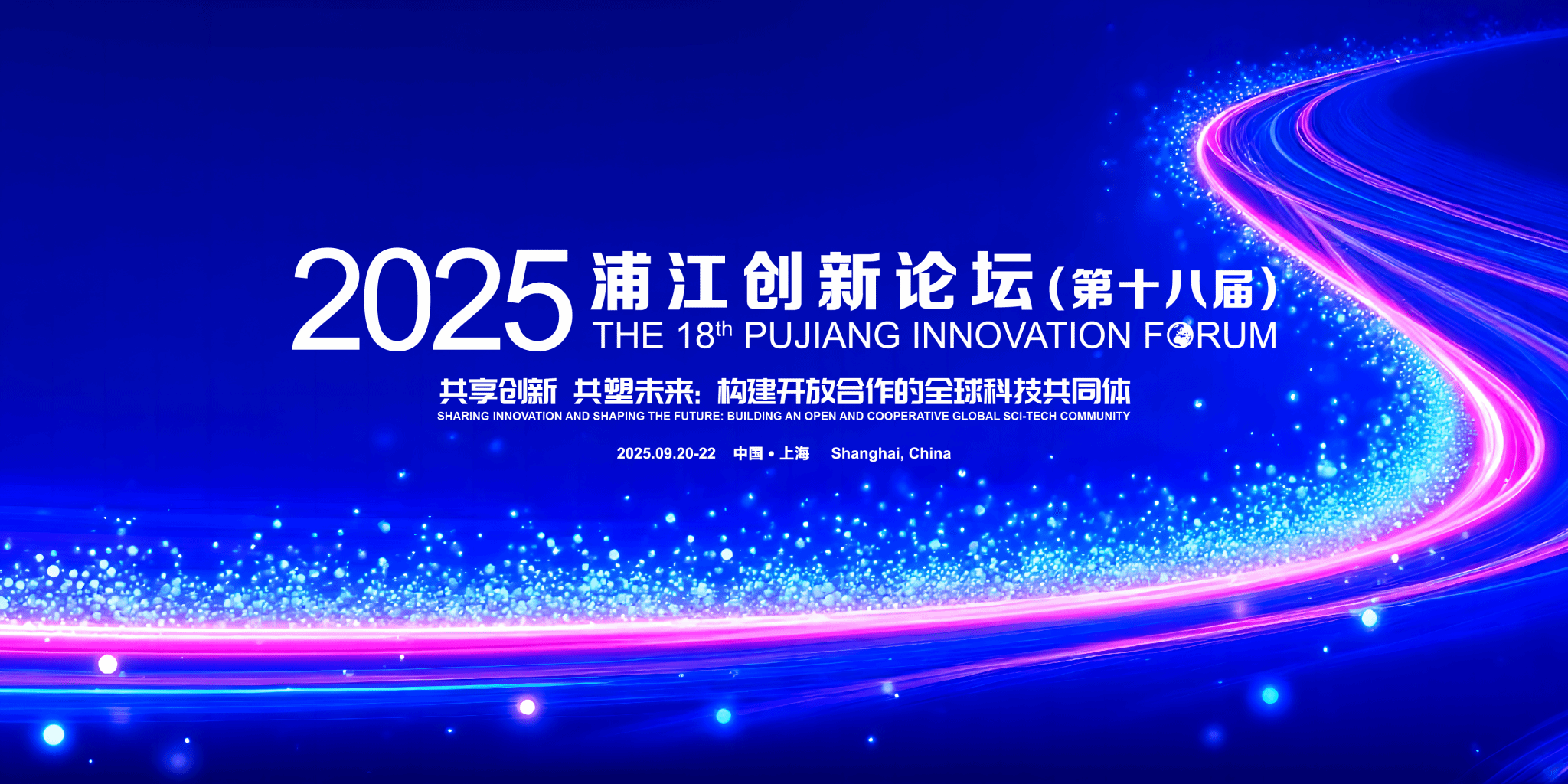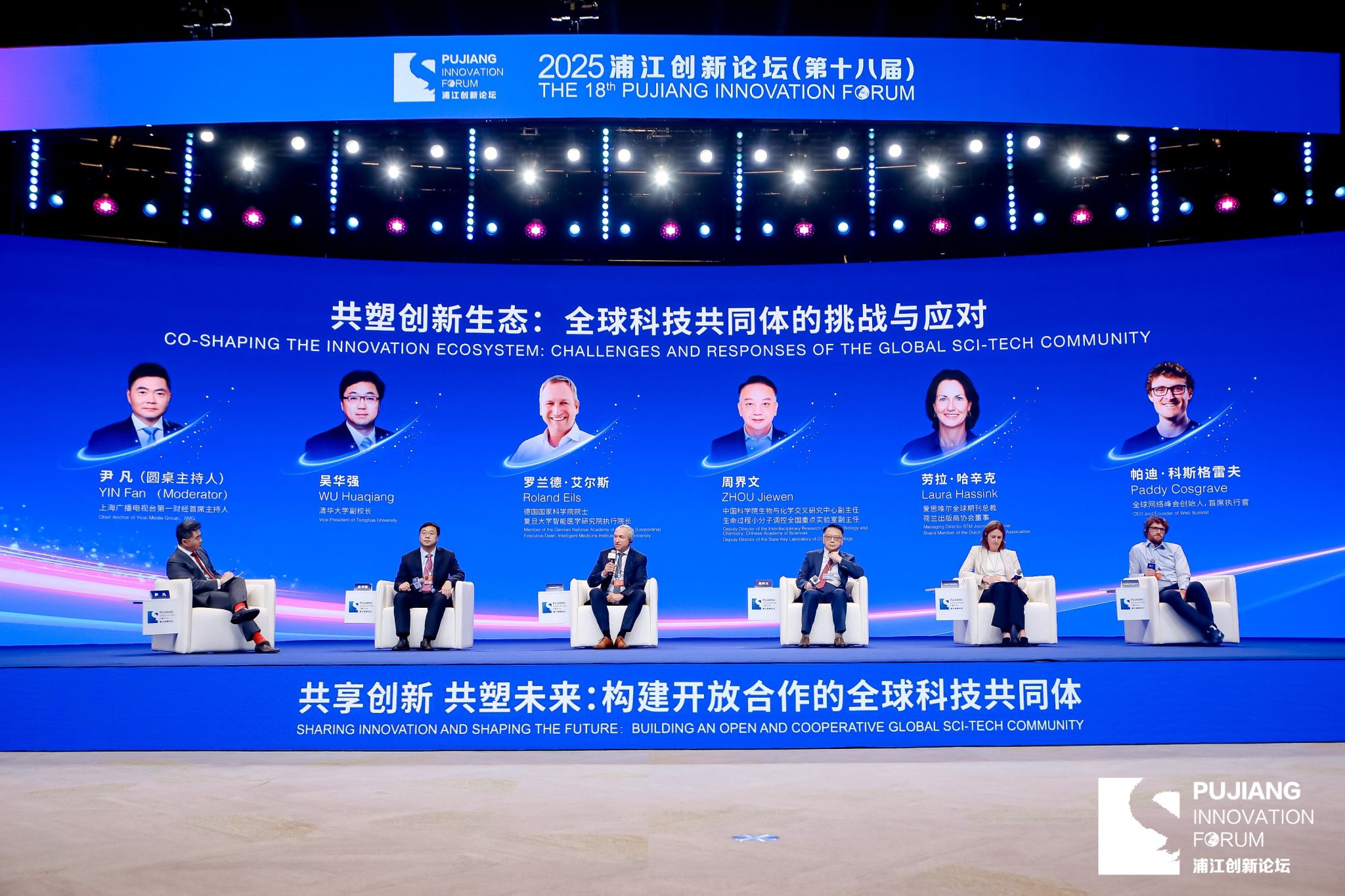On September 21, 2025, the main forum of the Pujiang Innovation Forum commenced at the Zhangjiang Science Hall in Shanghai. China's Minister of Science and Technology, Yin Hejun, and Sergei Shlychkov, Chairman of the State Committee on Science and Technology of Belarus, delivered keynote speeches. Gong Zheng, Deputy Secretary of the Shanghai Municipal Committee and Mayor of Shanghai, as well as Wang Xinwei, Deputy Secretary of the Liaoning Provincial Committee and Governor of Liaoning, attended the forum.

Centered on the theme "Sharing Innovation, Shaping the Future: Building an Open and Cooperative Global Sci-Tech Community," the forum brought together over 550 leading experts from 45 countries and regions. They engaged in discussions on collaborative pathways and solutions to development challenges in cutting-edge fields such as artificial intelligence, quantum technology, and biomedicine. During the roundtable dialogue titled "Shaping an Innovation Ecosystem: Challenges and Responses for the Global Sci-Tech Community," Roland Eils, Executive Director of the Intelligent Medical Research Institute at Fudan University and member of the German National Academy of Sciences, along with four other scientists, exchanged insights. Grounded in practical experiences in the field of intelligent medicine, they profoundly elaborated on the core value of international sci-tech cooperation.

Professor Roland Eils emphasized that medical research highly depends on data support, and secure cross-border, inter-institutional data sharing is a key driver for accelerating the implementation of AI in healthcare. "The importance of international sci-tech cooperation cannot be overstated," Academician Roland Eils explicitly stated during the dialogue, noting that the large-scale application of artificial intelligence in the healthcare field is currently facing dual challenges: data accessibility and the inclusivity of R&D benefits. He candidly expressed his unwavering commitment to promoting the deep integration of AI technology in medicine—"We anticipate that the breakthroughs brought by AI to medicine will transcend geographical limitations. It should not only serve patients in Europe but also become a force safeguarding the health of disease-affected populations globally, including those in Africa and Asia."
At the China-Europe Medical AI Cooperation and Development Sub-Forum held that afternoon, Academician Roland Eils stated in an exclusive interview with reporters that breakthrough achievements in medical AI continue to emerge, demonstrating significant technological advantages in scenarios such as disease prevention, diagnosis, treatment, and rehabilitation, with immense potential in addressing global health challenges. He pointed out that China has made remarkable contributions in this field, with the most typical example being the open-source large model DeepSeek, which originates from China.
As a frontier hub practicing open cooperation, the Intelligent Medical Research Institute at Fudan University has achieved significant breakthroughs in key areas such as health and medical big data, large medical models, and intelligent agents. It actively builds international collaboration networks and engages in deep synergy with top-tier global research institutions, clinical hospitals, and industry partners. These efforts continuously advance the transition of AI technologies from laboratory settings to clinical and industrial applications, translating the development goal of "serving patients worldwide" into tangible action.